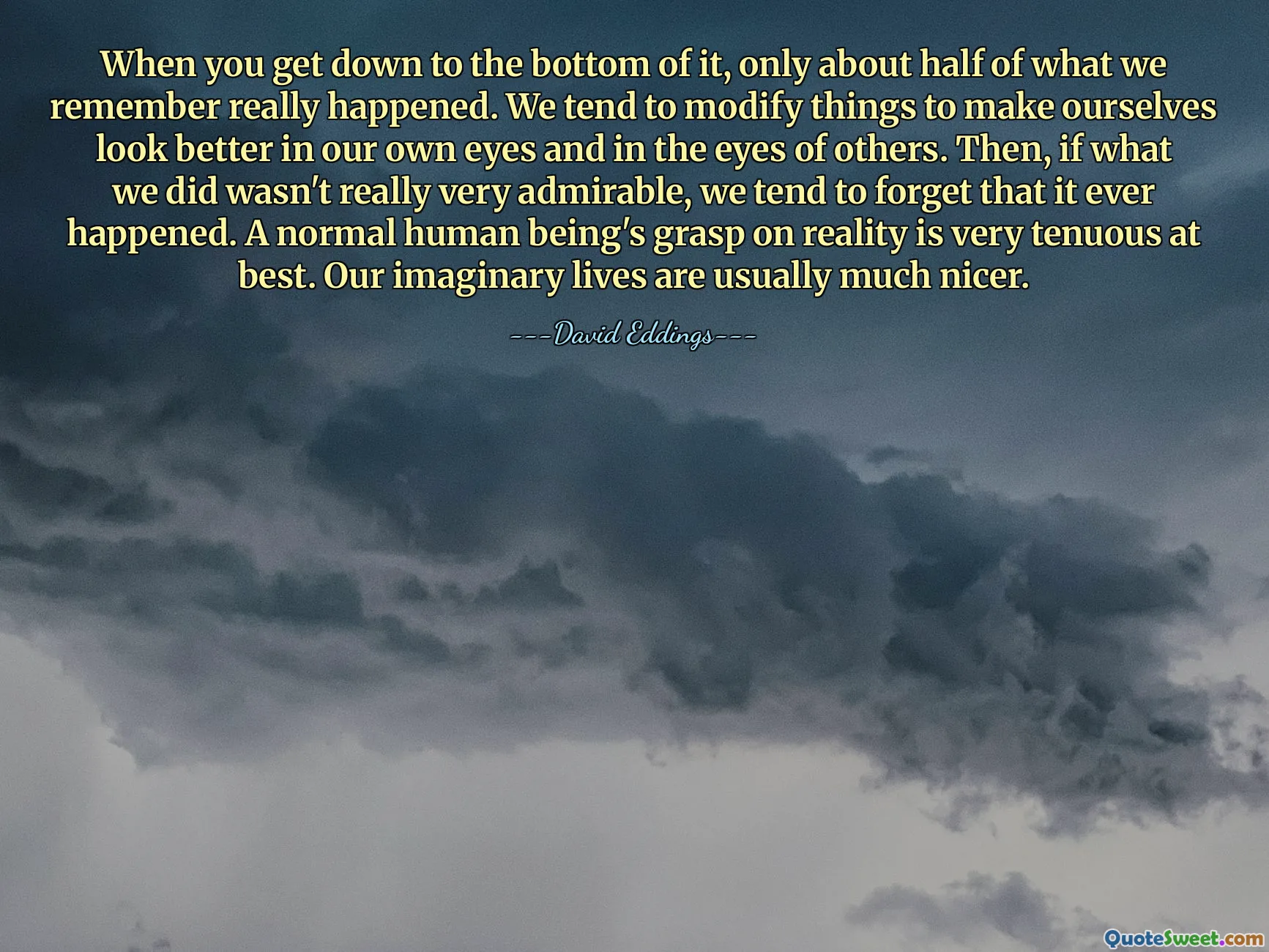
When you get down to the bottom of it, only about half of what we remember really happened. We tend to modify things to make ourselves look better in our own eyes and in the eyes of others. Then, if what we did wasn't really very admirable, we tend to forget that it ever happened. A normal human being's grasp on reality is very tenuous at best. Our imaginary lives are usually much nicer.
This quote delves into the intricate relationship between memory, self-perception, and reality. It highlights the fallibility of human memory, emphasizing that our recollections are often distorted or altered over time to serve our ego or self-image. We have an innate tendency to reshape past events to appear more favorable, shielding ourselves from guilt or shame and fostering a more comfortable narrative about who we are. The process isn't necessarily malicious; it's a psychological mechanism that helps maintain our mental well-being amid the complex truths of our lives. Moreover, when we overlook or forget the less admirable aspects of our history, we create personal stories that may feel more appealing but are distant from objective truth. This phenomenon raises thought-provoking questions about authenticity and the reliability of our perceptions. It demonstrates how subjective our reality truly is and underscores the importance—and challenge—of striving for honesty with ourselves. Understanding these tendencies can foster humility, empathy, and patience in interactions with others, recognizing that everyone's version of reality is filtered through a personal lens. Ultimately, the quote suggests that humans often reside in a comfortable, sometimes illusionary space of their own making, which can impede genuine self-awareness and growth. Accepting this fragility of memory and perception might be key to cultivating a more grounded and authentic experience of life.









